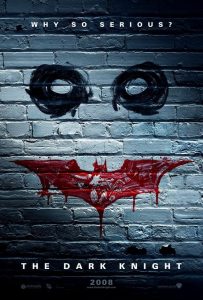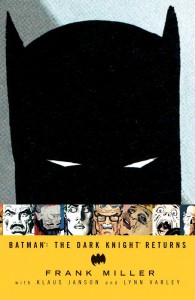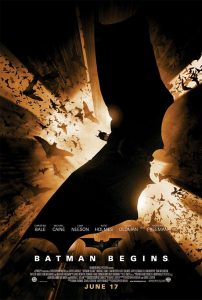After the extensive silliness of the archival Superman collection, I was a little trepidacious at the idea of the cracking open the initial Batman collection from the same people. (Well, okay, the people are DC, so that’s kind of a dumb way to put it, I guess.) But for lack of a better system I’m reading them chronologically, and that one was next. Therefore, in I plunged.
I’m pleased to report that this was a much stronger entry off the bat. (Er. Sorry.) I found that I kind of missed the full magazine approach that the other one used; no text stories amid the comics and no X-ray glasses or Batman fan-club order forms for me. I think as much as the nostalgia factor, I missed them because it left me less certain that I was actually reading all of the first few Batman adventures. (It didn’t help that one episode referenced a previous encounter between our hero and the villain in question. I have no idea if it was an in media res device or an actual backward reference to a missing story.) And in one unfortunate occurrence, Batman stole a story directly from the Superman of the same period: a football player is kidnapped, so Bruce Wayne uses his make-up and disguise talents (which are, admittedly, a lot more palatable than contemplating Clark Kent’s, whose best disguise consists of a pair of unlensed frames) to render himself identical to the missing player and win the big game. That’s, uh, heroic.
But like I said, on the whole it was a much stronger book. For one thing, it had iconic villains from the earliest stories. While Superman is off fighting interchangeable industrialists bent on raping the middle class and poor countries around the world, Batman is fighting the Joker or Catwoman. Definite advantage here. I have to think the smaller scope in general is part of what makes him a better superhero for the ages. He can be hurt, he can face real setbacks, he has enemies that can make realistic plans to take him out of commission.
And, he has a sidekick that… well, okay, Robin bugs me a little bit, in that he seems to be as effective at sixteen as the full-grown man he’s working with, despite the latter’s drive to avenge his parents and past. (As I understand it, Robin has an equally grim past, but it was never delved into in this volume.) Plus, he’s always grinning widely. Artistic decision, sure, but it also bugged me a little. I guess it’s part of the propaganda portion. He doesn’t really have a character of his own besides ‘generically happy’. He is clearly there for no better reason than to stand in for the teenage boy reader, which isn’t so bad by itself, but then he’s constantly used in that role to teach moral lessons. And I know that’s probably more good than bad, but I’m here for the plots and the characterizations, and I’m simply not going to like it when things get in the way of that. So, less Robin, more Batman, please.
Anyhow, that was as minor of a concern as the football adventure, really. The point is, Batman is dark but likeable, easy to identify with, has excellent opposition, and is just downright fun. Plus, he seems more averse to leaving a trail of corpses behind him, which it took the (seemingly more moral) Superman a little while to accomplish. The misogyny, though, that’s still there. Sure, he keeps saving Catwoman from other villains and now and again from the law simply because he thinks he can get in there, someday. (And watching Robin be confused over that hidden motive was worth his character being present at all.) But that’s the kind of misogyny that I’d think a girl could get behind, if it means she gets away with thousands of dollars worth of jewels every so often.
It’s the other kind that made the book for me, based on the shocked giggles it provided. (I know it’s a double standard, but since it happened 65 years ago and is so, well, cartoonish on top of that, it just doesn’t feel real; as I know it couldn’t happen now, I permit myself some obviously morally defective enjoyment out of it.) I will now describe a single panel of the book, from Batman’s first encounter with the Cat. Awful, I know. But also kind of awesome? You be the judge.
He has just removed the old lady wig, revealing Scooby Doo-style that she’s the villain. Now, he is forcibly wiping the old lady makeup from her face. She cries out, ‘Let go of me!’ His response: ‘Quiet or Papa spank!’
 It is, I retroactively declare, a good weekend I think for seeing a new movie premiere. After spending a couple of hours around a pizza and an airing of
It is, I retroactively declare, a good weekend I think for seeing a new movie premiere. After spending a couple of hours around a pizza and an airing of 
 As you can see, I’ve been kinda busy this weekend, with all the movies being watched and whatnot. The thing is, the whole moving thing has pushed me way behind. Even now, there are two theatrical releases I’d like to hit, and two more just days off. So, it’s nice to take a few moments of breathing space and enjoy myself. Which I did do, and the result is all this.
As you can see, I’ve been kinda busy this weekend, with all the movies being watched and whatnot. The thing is, the whole moving thing has pushed me way behind. Even now, there are two theatrical releases I’d like to hit, and two more just days off. So, it’s nice to take a few moments of breathing space and enjoy myself. Which I did do, and the result is all this. When I first saw the preview for
When I first saw the preview for